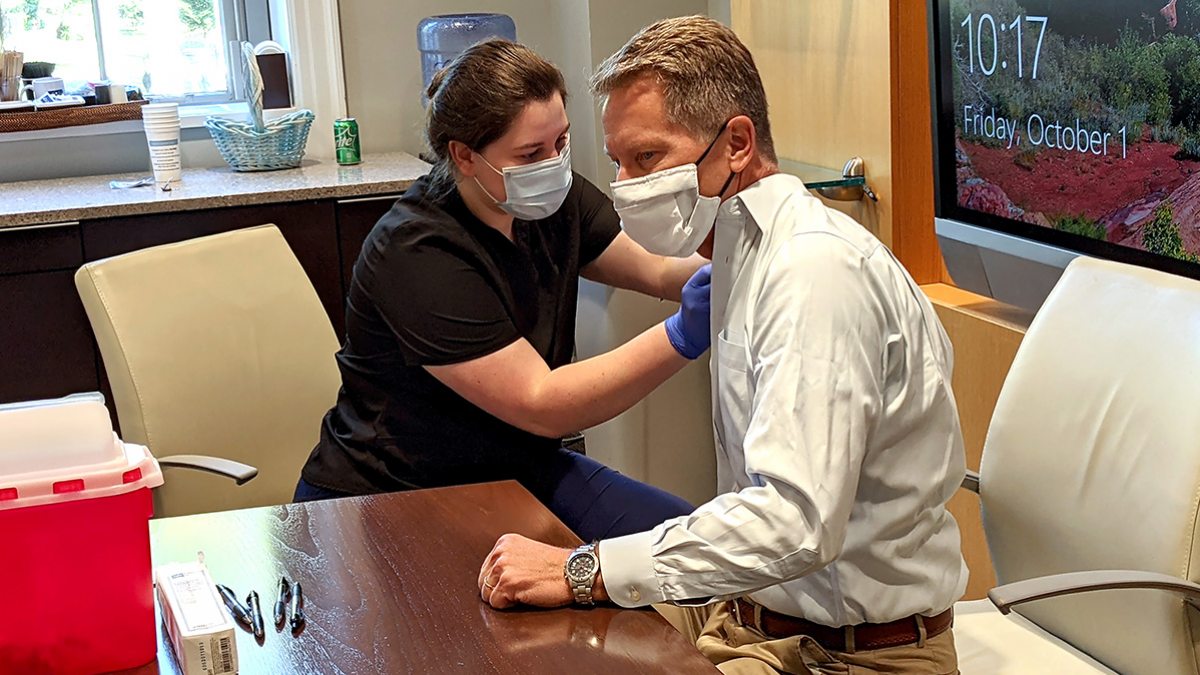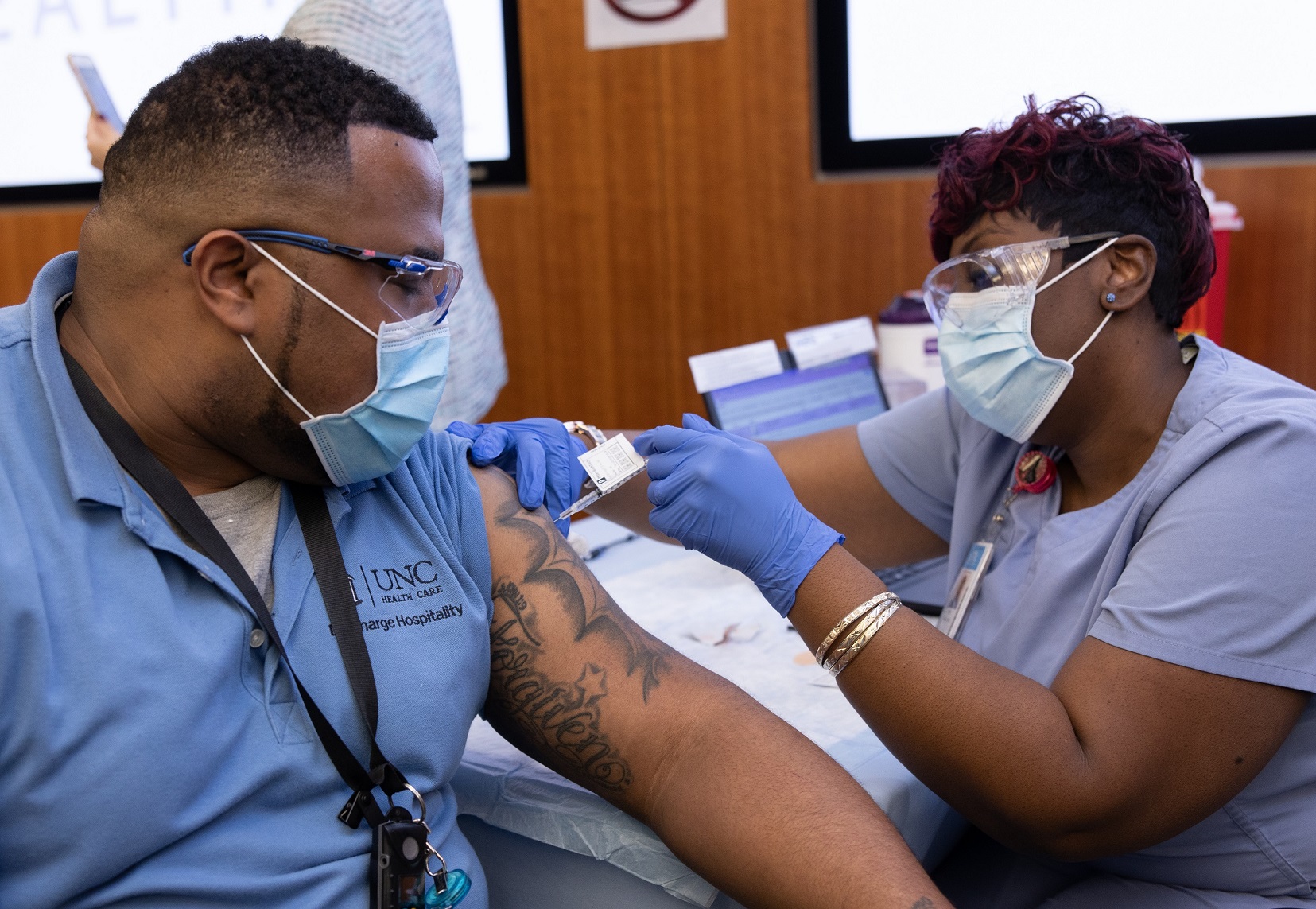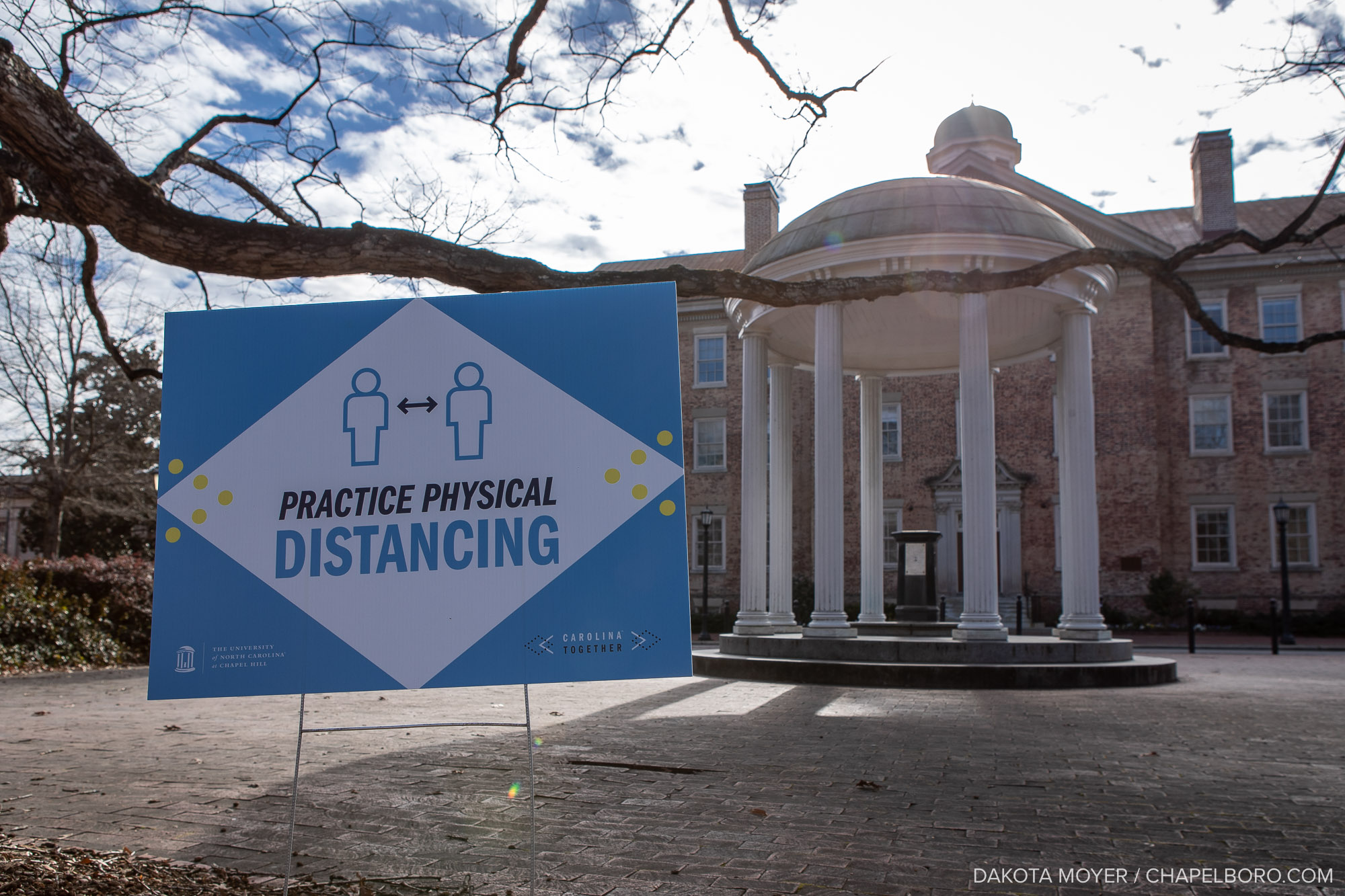In addition to the ongoing challenges created by the COVID-19 pandemic, the nation’s opioid epidemic has grown into a much more complicated and deadly drug overdose epidemic.
The American Medical Association said that more than 40 states have reported increases in opioid-related mortality as well as ongoing concerns for those with a mental illness or substance use disorder.
Dr. Robyn Jordan is a psychiatrist, addiction specialist and the Medical Director of UNC’s Addiction Medicine Program. This program encompasses the Alcohol and Substance Abuse Program, or ASAP, and the Substance Treatment and Recovery Clinic, or STAR. Jordan said ASAP is a therapy clinic for people with substance use disorders while STAR focuses on medication management.
Last year ASAP and STAR were able to serve 105 new patients in need of addiction treatment. This year, in the midst of a global pandemic, those numbers are projected to double. Jordan said loss of employment and isolation have been big factors in the rise of substance abuse and subsequent relapse.
“The severity of the medical illness combined with their substance use disorder is much higher than we’ve ever treated before,” Jordan said. “We’re seeing more patients with history of overdose, more patients with history of having had Narcan or needing to be revived and just the severity of illness is unparalleled to what we’ve ever had to treat before. The demand continues to rise and even though we expand our capacity we still cannot meet the demand that’s out there.”
Jordan said, unfortunately, the ways in which COVID-19 was expected to affect the opioid pandemic have come true. Statewide, from January to September 2020, North Carolina has seen a 24 percent increase in opioid overdose as compared to the year prior.
“When you look at August alone, August overdoses were around 45 percent increased from August one year ago,” Jordan said. “So over the year it averages out to a 24 percent increase, but per month the overdoses are going up and it gives us a lot of concern about what’s coming.”
Jordan said, while any increase is concerning, it’s important to note that August overdose numbers are exceptionally high in comparison to other months. New state data shows September 2020 having 678 opioid overdoses as compared to the 565 from September of last year – roughly a 20 percent increase.
With this dramatic increase in need, Jordan said one of the first ways to address this crisis is to understand that addiction is a chronic disease – much like diabetes or hypertension.
“We know if we stop someone’s blood pressure medicine or their insulin, that their medical illnesses are going to get worse,” Jordan said. “So we see addiction the same way. It needs to be treated like a chronic illness. They often need medication and we need to provide medication for as long as needed. We work with people with chronic illness on behavior modifications to try to make illness better, but that doesn’t mean we have to have an end date for when people stop treatment.”
According to the National Institutes of Health, similar to mood disorders like depression, both genetic and environmental variables contribute to the transition from substance use to addiction. Scientists estimate that genetic factors account for 40 to 60 percent of a person’s vulnerability to addiction.
Jordan said mental illness and substance use disorder go hand in hand and require joint treatment. This means therapy, medication and continued support. It also means education. Jordan said proper education could lead to simple, lifesaving measures, like making Narcan more widely available.
Narcan, or Naloxone, is a nasal spray that can treat and revive a person during an opioid overdose. Jordan said a dose of Narcan doesn’t harm anyone, even if it is administered to someone who hasn’t overdosed. Because of this, she said everyone should have Narcan available in their first-aid kit in case of emergencies.
“I think it should be available for everyone,” Jordan said. “I live in an opioid-free home and I still have Narcan in my home – everyone in my home knows how to use it. I think it’s because of stigma that we don’t speak about this more widely. I think it’s super important to recognize that we are in an opioid epidemic at the time of COVID – that our epidemic is worsening at great lengths that were unexpected – and that there are things we can do to help.”
For more information on UNC’s Alcohol and Substance Abuse Treatment Program, click here.
Check out the last issue of “Addressing Taboo Topics” regarding the Biology of Eating Disorders here.
Have a taboo topic that you feel needs to be addressed? Send your ideas to elle@wchl.com.
Chapelboro.com does not charge subscription fees. You can support local journalism and our mission to serve the community. Contribute today – every single dollar matters.











